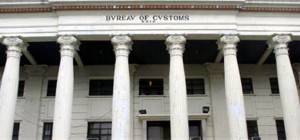An election lawyer urged the Commission on Elections (Comelec), on Sunday, to scrap plans of employing Internet voting technology for overseas absentee voting (OAV) in the May 2016 balloting in the absence of clear-cut rules on such a scheme.
Laywer Romulo Macalintal said for the May 9 elections in next year, the Comelec should just stick to the existing mode of voting for overseas Filipino workers (OFWs) since some provisions of the Overseas Voting Act of 2013 were vague.
“Definitely, the election body should wait for clearer provisions of the law allowing Internet voting and its mechanisms,” Macalintal told reporters, citing that under the law, the Comelec has been merely allowed “to explore” Internet-based technology for OAV.
He also raised possible security issues—such as the safety of the ballots and the real identity of online voters—should the Comelec push through with pilot-testing online voting for OFWs citing “the culture of elections” in the country.
“It would take time for Internet voting in our country to be accepted knowing especially that losers would always cry that they were cheated. So, they won’t ever trust such a system of voting,” said the election lawyer.
Earlier, the Comelec said it would decide by December 1 as to the mode of voting for OFWs, who have been scheduled to cast their ballots for the 2016 presidential elections beginning April 9 until Election Day.
Last week, the Department of Foreign Affairs called on the election body to implement an online voting scheme for Filipino seafarers to address their difficulty of accessing voting centers while at sea.
Under the OAV, OFWs must either cast their ballots personally at the Philippine embassy or consulate or mail their ballots to the Philippine diplomatic outpost near them. Jocelyn R. Uy, Philippine Daily Inquirer


